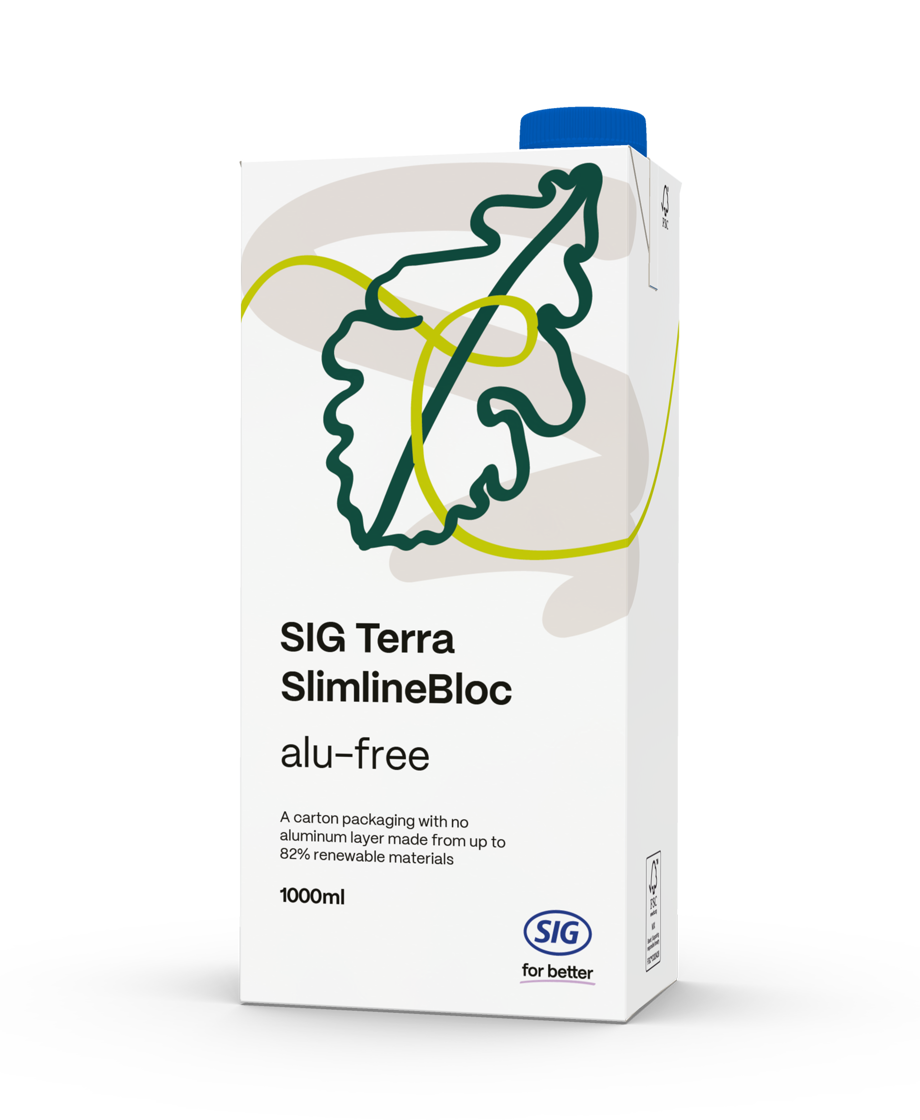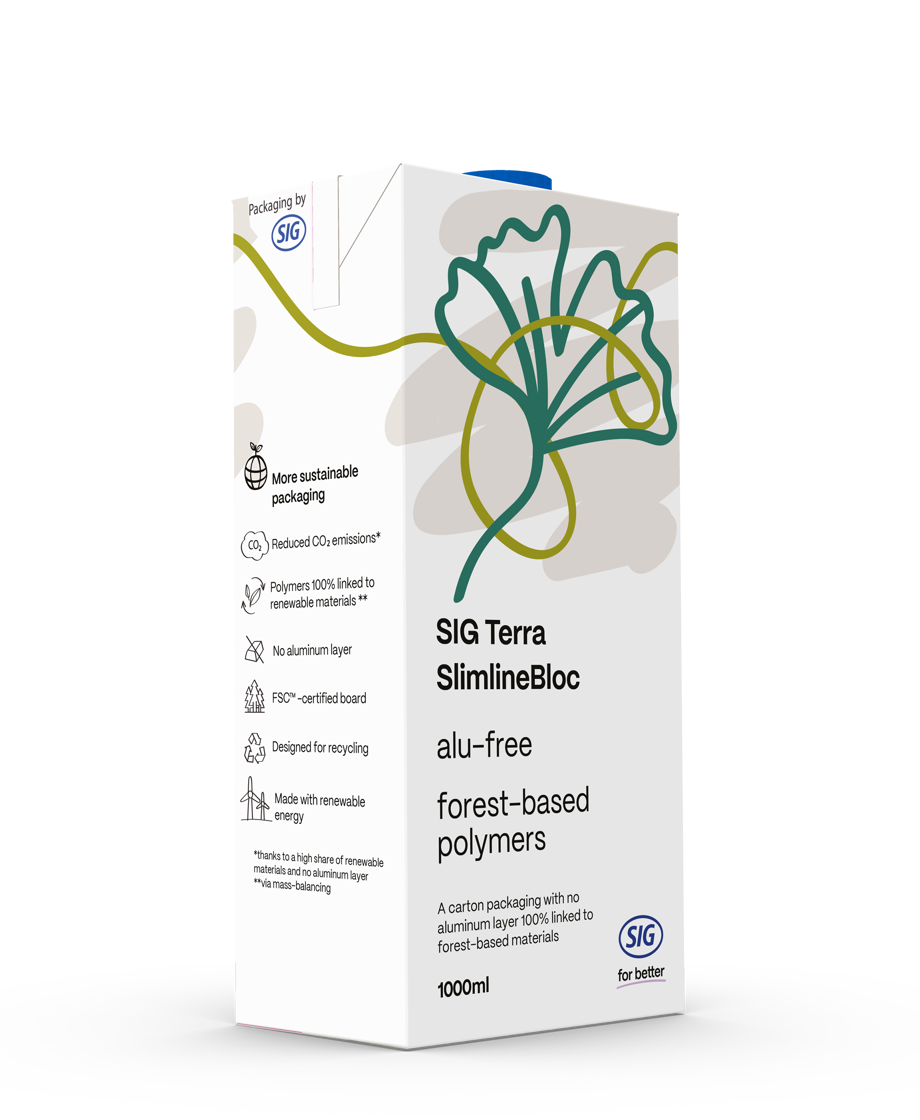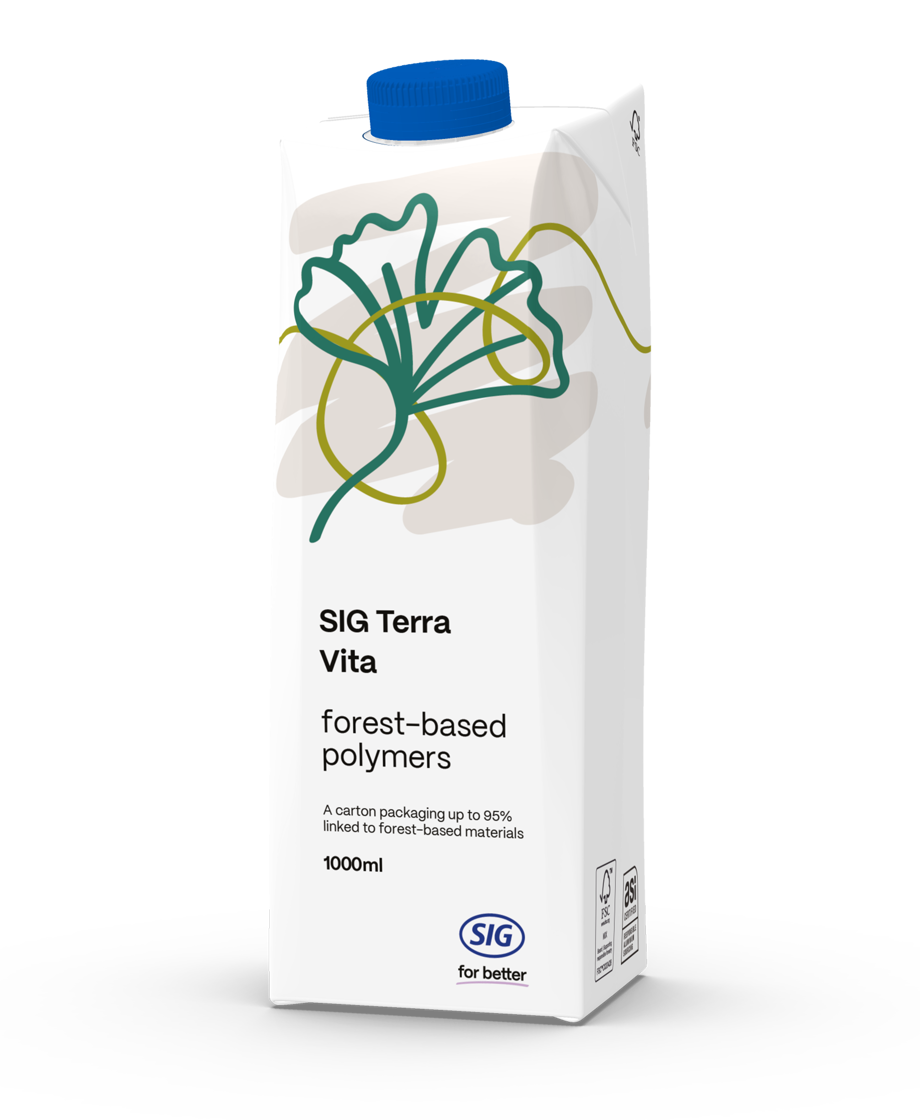Our planet's resources are finite and its capacity to absorb waste is limited. Society needs to move towards a circular economy where we stop producing waste and strengthen natural systems by:
- Eliminating waste and pollution
- Circulating products and materials
- Regenerating nature
We know SIG can play a big part in this.
We strive to lead the way towards a fully circular packaging system. Designing packaging with recycling in mind and using renewable and recycled materials are essential steps towards achieving a more sustainable and circular economy. Our ambition for our packs is that one day they are made exclusively from renewable or recycled materials and that every pack we make gets recycled. We have already taken steps to get there.
Design out waste
Our industry-leading resource efficient design and low packaging-to-product ratio make the life-cycle carbon footprint of our products lower than alternative types of packaging.
- Our average aseptic carton pack has a carbon footprint up to 70% lower than plastic bottles or cans, with our SIG Terra portfolio up to 58% lower still
- Bag-in-box for wine offers an approximate 80% smaller carbon footprint than glass bottles1.
- Recycle-ready spouted pouches for baby food offer an 11% reduction in carbon footprint compared with plastic tubs and a 59% reduction compared with glass jars1.
We strive to minimize production waste and optimize use of materials through the design of our packs, including through innovations such as our RS structure, which optimizes use of materials while improving the robustness of our aseptic cartons during filling and distribution.
1 Life-cycle assessment results to be confirmed through an independent critical review process.
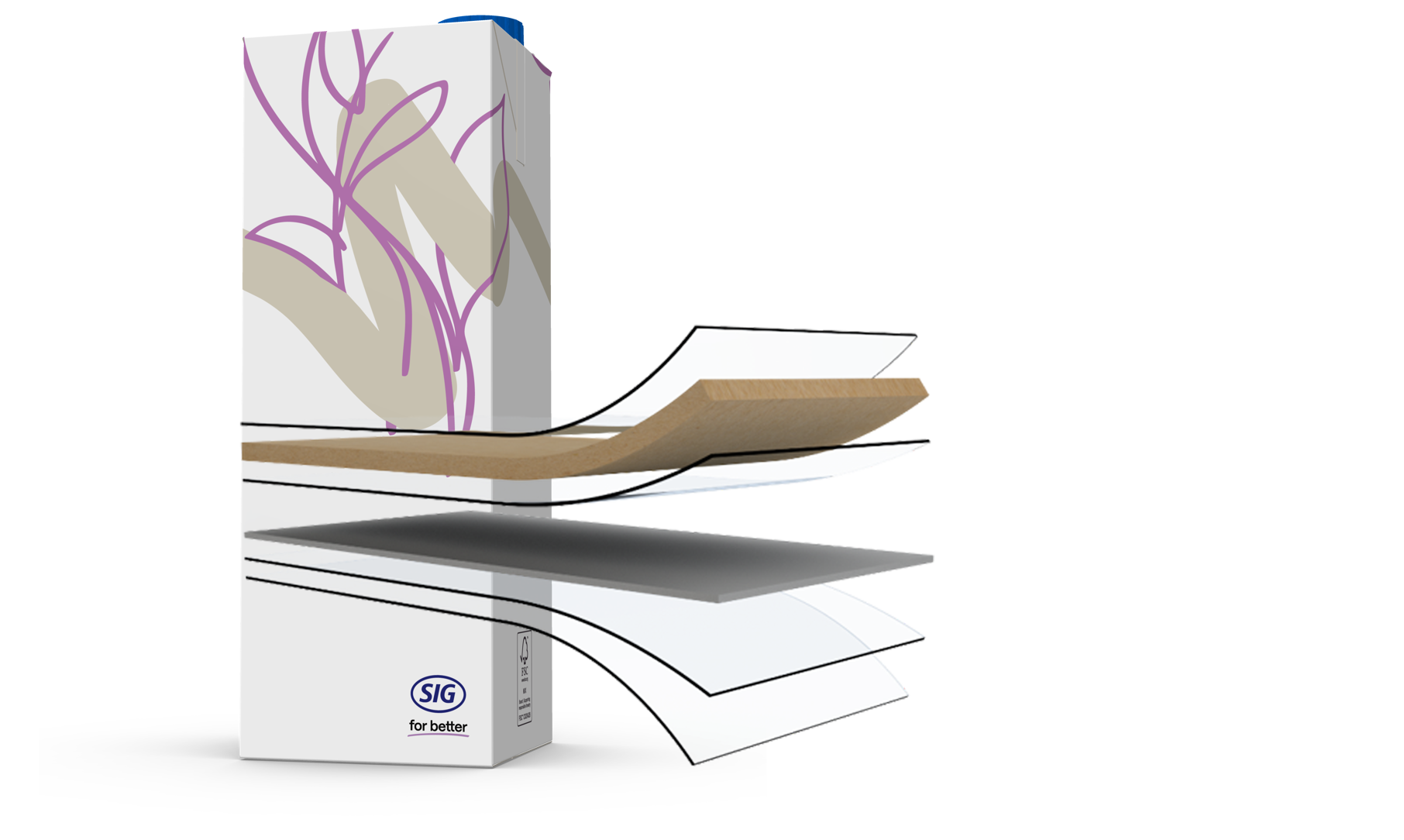
Regenerate natural systems
We protect the sustainable forests we source from by purchasing 100% of the paperboard we use in our cartons with FSC™ certification (FSC™ trademark licence code: FSC™ C020428). And we are committed to create, restore, protect, or improve management of an additional 650,000 hectares of thriving forest by 2030.
Our partnership with WWF Switzerland support projects on the ground that improve the sustainability, biodiversity, and resilience of forests. Our flagship project will improve the management of 100,000 hectares of forest and restore 750 hectares of forest, creating habitat corridors for jaguars.
We are working to increase the proportion of renewable materials in our packs through our SIG Terra portfolio and will develop a full barrier aseptic carton with at least 90% paper content (including closure) by 2030 with an intermediate target of 85% (without closure) by 2025.

Keep products and materials in circulation
All our cartons are designed to be recyclable where infrastructure allows and the simple, recycle-ready construction of components of our bag-in-box and spouted pouch solutions help simplify the recycling process. We are committed to partnering with stakeholders to increase collection and recycling of used packs. We support keeping materials in circulation by using tall oil, a by-product of the paper industry, as forest-based feedstock for the renewable polymers in some of our SIG Terra solutions and by offering the option to link polymers in our packs to post-consumer recycled content with our SIG Terra Circular Polymers solution.
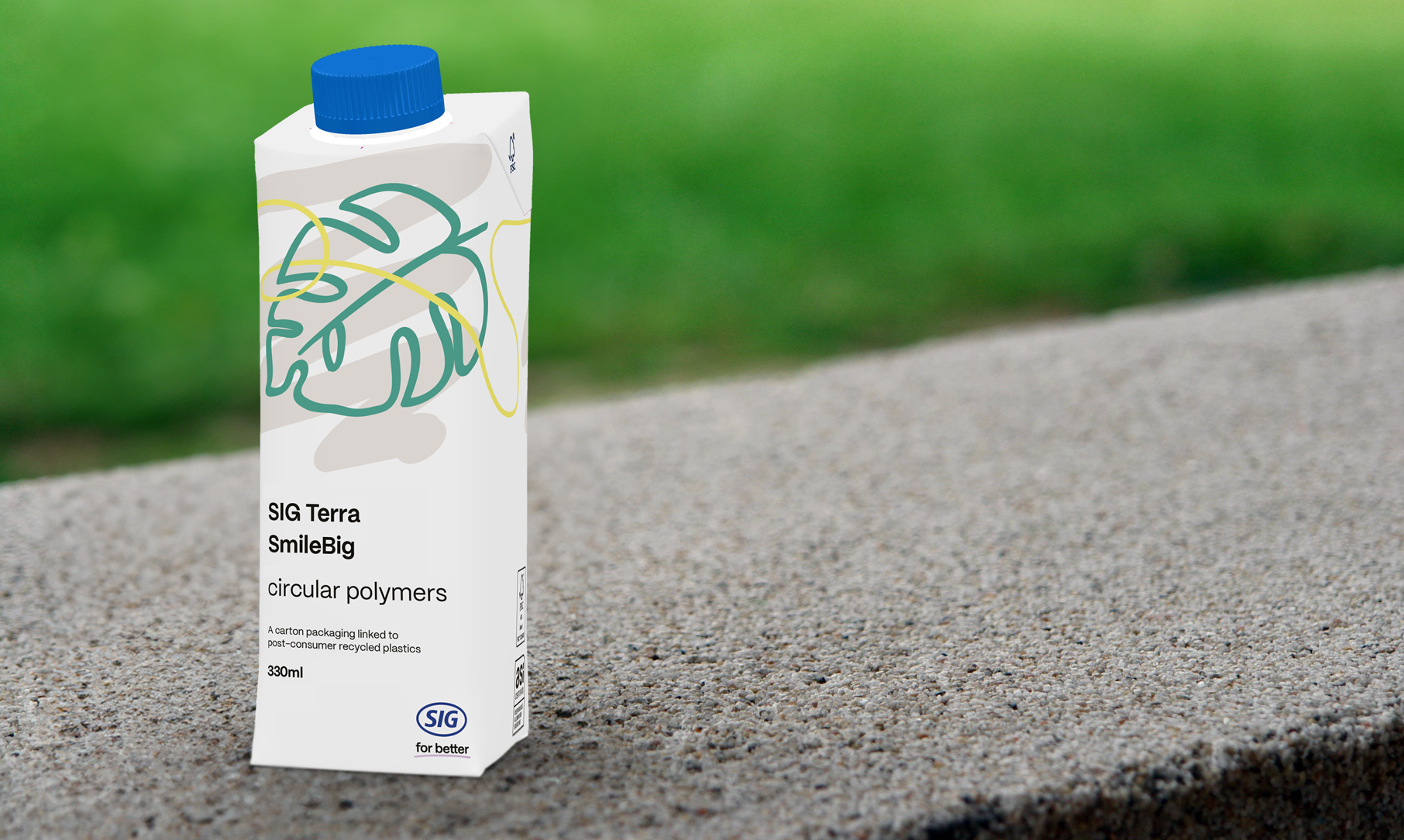
Our commitment: increase recycling
Our company goal: to turn used packs into new resources through recycling and partner with industry and stakeholders to reach recycling at scale in all our priority markets
Although the majority of our packs are fully recyclable, waste handling and processing systems differ worldwide. We are committed to collaborating with our industry peers and associations to significantly increase packaging recycling globally.
Read more about our work to increase collection and recycling
"Our partnerships around the world incentivizing collection and recycling are key to creating a resource positive future. We’re proud of our collaborations which strengthen communities, ensure equitable working conditions and advance innovative recycling techniques to help to recirculate the materials we use."
Ricardo Rodriguez
President and General Manager, Americas

Our commitment: circular packaging
Our product promise: to design cartons that support increased circularity
We are committed not just to increasing collection and recycling rates for cartons as they are today, but to designing them in a way that increases circularity in the future.
How do we do this?
Renewable and recycled content
Our ambition
Lead the industry for renewable content by continually increasing paper content in our flagship aseptic cartons,1 and comply with regulatory requirements on post-consumer recycled plastic content2 in every relevant SIG packaging.
1Top five SIG aseptic carton formats by sales volume.
2Via an independently certified mass balance system.
Where we are today
All our cartons are made mostly of renewable forest-based paper board.
We offer forest-based polymers3 for all our aseptic cartons.
We offer the world’s first full-barrier aseptic carton linked to 100% forest-based renewable content4 with no aluminum layer.
We offer circular polymer solutions linked to post-consumer recycled plastics5 for all our aseptic cartons and we are piloting circular polymers for bag-in-box.
3 Via an independently certified mass balance system.
4 Excluding negligible constituents, such as inks and pigments. Polymers linked to wood residues from paper making via an independently certified mass balance system.
5 Via an independently certified mass balance system.
By 2025
We will develop a full barrier aseptic carton with at least 85% paper content (excluding closure).
We will keep materials in circulation by offering renewable and/or recycled polymer content for all our packaging.
By 2030
We will develop a full barrier aseptic carton with at least 90% paper content (including closure).
We will make all our flagship aseptic carton formats6 available with no aluminum layer.
6 Top five SIG aseptic carton formats by sales volume.
Design for recycling
Our ambition
Lead the industry in designing for recycling to offer recycle-ready options for every relevant SIG packaging – in line with our sustainable packaging guidelines.
Where we are today
All our cartons are already designed for recycling.1
Our SIG Terra portfolio already includes recycle-ready2 bag-in-box or spouted pouch solutions.
1 In line with guidelines developed by ACE and 4Evergreen, and the relevant EN643 standard.
2 In line with Design for Recycling criteria developed by APR (Association of Plastic Recyclers) and Recyclass.
By 2025
We will offer a recycle-ready3 bag-in-box and spouted pouch solution in all our relevant market segments.
3 In line with Design for Recycling criteria developed by APR (Association of Plastic Recyclers) and Recyclass.
Recycling at scale
Our ambition
Advocate and partner through industry associations to achieve recycling at scale in all priority countries where SIG is active.
Where we are today
We support collection and recycling through country specific roadmaps in priority countries that account for more than 90% of our global packaging sales (by weight).
By 2025
Partner with industry and stakeholders to implement dedicated and country-specific roadmaps to support increased collection and recycling of beverage cartons, bag-in-box, and spouted pouches in priority countries that account for more than 90% of our global packaging sales (by weight).
By 2030
Achieve a 90% collection and 70% recycling rate for our beverage cartons in Europe (through our commitment to the ACE 2030 roadmap).

Achieve a 90% collection and 70% recycling rate for our beverage cartons in Europe by 2030.

Offer a recycle-ready solution across all market segments served by our bag-in-box and spouted pouch product by 2025.

Keep materials in circulation by offering renewable and/or recycled polymer content for all our packaging by 2025.

Help eliminate litter by increasing used packaging collection worldwide through our advocacy efforts.

Partner with industry and stakeholders to strive for recycling at scale for all our packaging in all our priority markets.
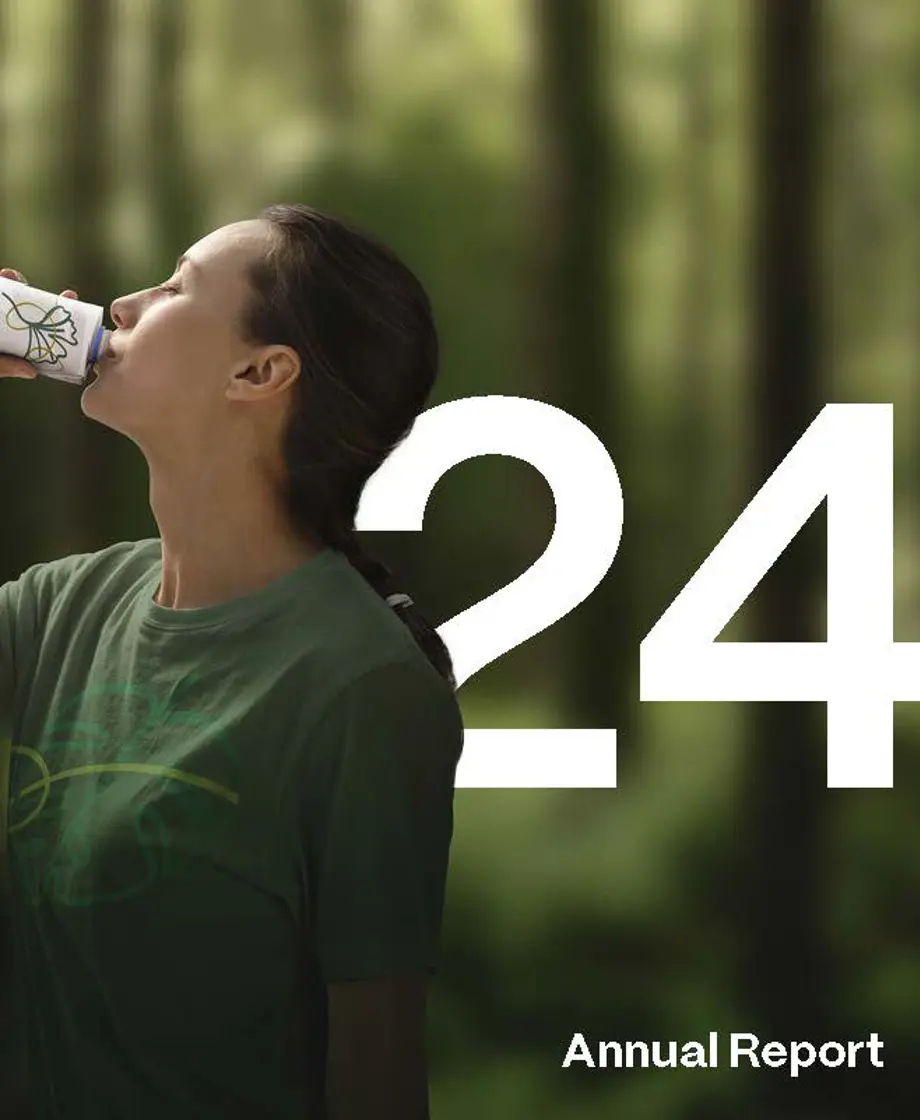
Latest annual and CR report
Full detail of our approach and progress can be found in our 2024 combined Annual and CR Report
Spotlight on
Recycle for Good
The SIG Foundation supports our ambitions through targeted charitable projects and partnerships that strengthen civil society and create positive impacts for the environment. Avoiding waste is a common goal of all initiatives, including Recycle for Good – our community recycling program that aims to bring recyclable materials back into circulation.
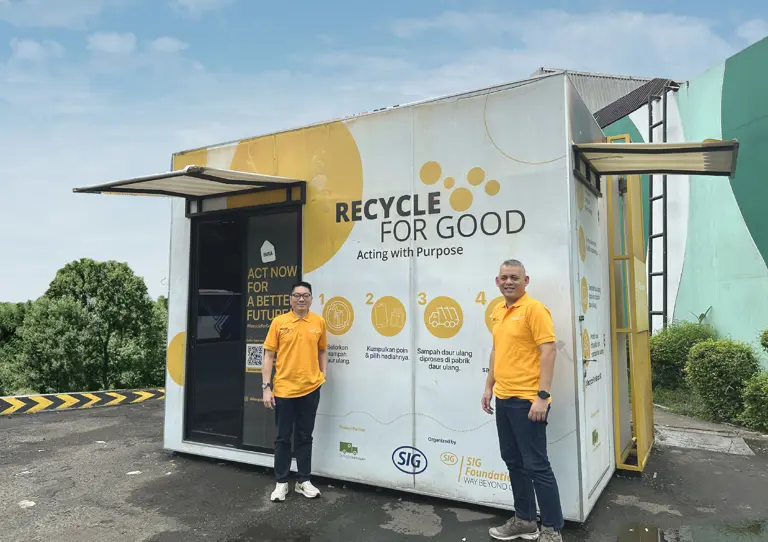
Cidade+Recicleiros
SIG invests in the Cidade+Recicleiros program to enable cities, companies, and communities in Brazil to establish effective municipal systems to collect and separate consumer waste and ensure decent working conditions for waste pickers. This pioneering model has now been adopted by the Brazilian government as federal public policy.
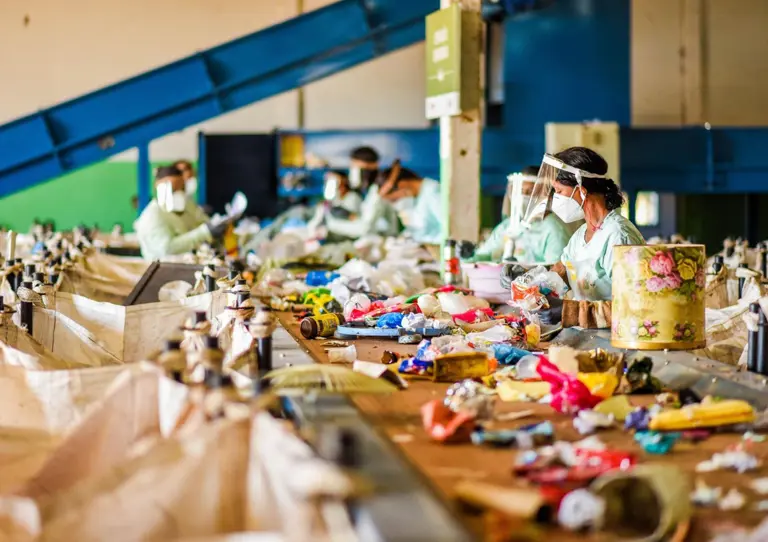
Boosting recycling in Egypt
Partnering with the German Development Cooperation through GIZ to boost recycling and livelihoods in Egypt, we have launched a three-year public–private partnership with Plastic Bank to create an effective system for collecting and recycling used beverage cartons in Egypt – and improve working conditions for informal waste collectors. It is the first time that Plastic Bank is adding beverage carton to their blockchain technology, delivering full traceability to the recycling value chain.
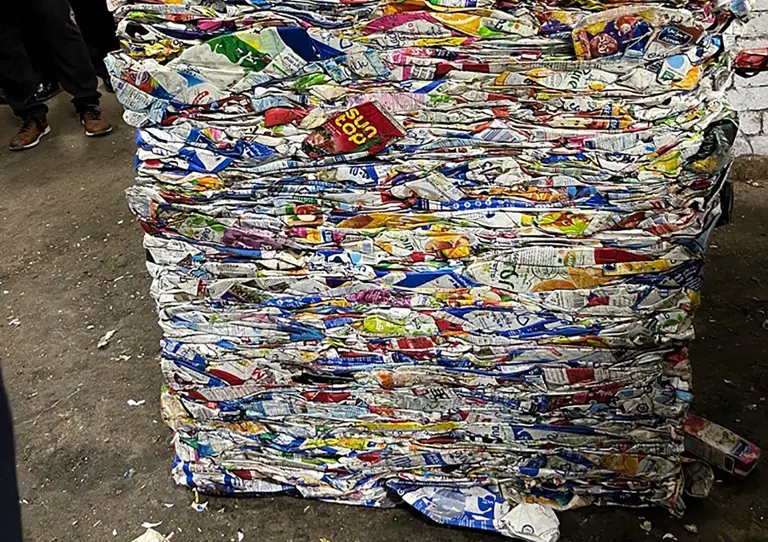
Partnering to progress circularity
SIG partners with industry, customers, governments, non-governmental organizations, and communities on global and regional level to develop and implement solutions for a circular economy. We are also part of national producer responsibility organizations (PROs), industry associations, and other interest groups that seek to promote recycling in countries such as Australia, China, India, Indonesia, Malaysia, New Zealand, South Korea, Thailand, Vietnam, and the USA.
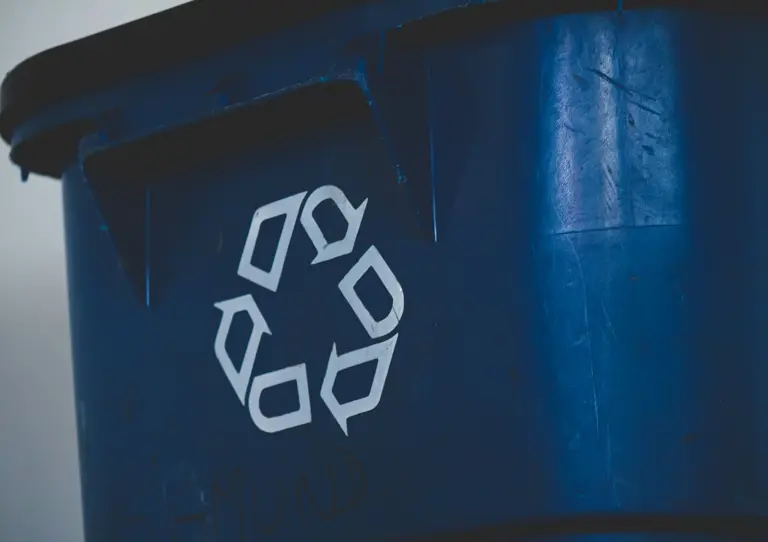
Carton circularity
Our commitment to increasing paper-content
Goal: 85% (without closure) in 2025 and 90% paper-content by 2030
We have committed to increase the proportion of paper content in our aseptic cartons by developing a full-barrier aluminum-free aseptic packaging structure with at least 90% paper content (with closure) by 2030, and at least 85% (without closure) by 2025. The aim is for our cartons to be suitable for recycling in the paper stream.
Bag-in-box and spouted pouch circularity
Our pouches are designed to protect the product inside using less packaging material – and therefore resources – than other packaging types. Our spouted pouch and bag-in-box business unit pioneered technology solutions to manufacture pouches from a single type of polymer to lead the industry in recycle-ready barriers that help simplify the recycling process. Our focus on recycle-ready solutions has created a future-proof system for a circular economy, enabling its mechanical recycling where infrastructure exists.
We acknowledge that increasing recycling rates and securing renewable materials for our bag-in-box and spouted pouches is challenging. We are always seeking to make more of our range ‘recycle-ready’ and are actively working with partners on technical solutions for mechanical and chemical recycling. We were the first to introduce a bag-in-box recognized as recycle-ready by the US Association of Plastic Recyclers (APR), and the world's first bag-in-box linked to recycled content.
Our ultimate goal is to retain the benefits of bag in-box and spouted pouches – their lower material use and carbon footprint – while making every pack easily recyclable and made from only recycled and/or renewable materials.


